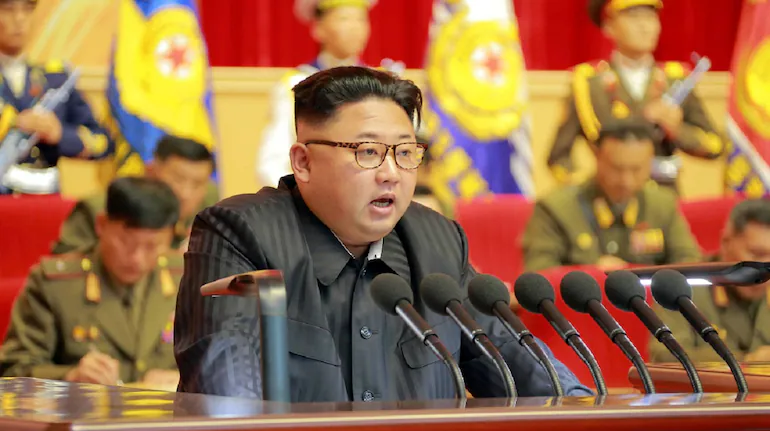Seoul: South Korea’s spy agency has issued a warning about North Korea’s intentions to carry out “terrorist” attacks targeting South Korean officials and citizens abroad. The National Intelligence Service (NIS) revealed that North Korea is gearing up for such attacks in various countries, including China, Southeast Asia, and the Middle East.
According to the NIS, North Korea has deployed agents to these regions to intensify surveillance on South Korean embassies and is actively seeking out South Korean citizens as potential targets. This alarming development is believed to be connected to a recent surge in defections by elite North Koreans stranded abroad during the pandemic. These individuals have grown wary of the North Korean regime and are reluctant to return home.
Defections are viewed as serious offenses by Pyongyang, with severe repercussions not only for the defectors but also for their families and associates. The NIS suspects that North Korean embassy officials may be fabricating reports to attribute defections to external factors in order to avoid punishment. Consequently, North Korea may be planning retaliatory actions against South Korean embassy staff based on these false claims.
In response to the heightened threat, South Korea’s foreign ministry has raised the anti-terrorism alert level for five of its diplomatic missions in Cambodia, Laos, Vietnam, Vladivostok (Russia), and Shenyang (China). Both South Korea and North Korea have diplomatic presence in these locations.
The pandemic-induced travel restrictions have enabled North Korean agents to operate more freely abroad, while South Koreans are also traveling without constraints. Experts believe that Pyongyang is targeting South Korean assets and nationals in countries where it has strong diplomatic relations.

The prolonged stay of North Korean expatriates abroad during the pandemic has led to growing disillusionment with the isolated regime. Experiencing life outside North Korea, particularly for their children who attend regular schools, has fueled skepticism among these expatriates.
Given the pressure on North Korean diplomats to address defections by elite expats, there are concerns that Pyongyang might resort to terrorist tactics against South Koreans living overseas. This is not unprecedented, as Pyongyang has been implicated in past attacks, including the 1996 killing of a South Korean consul in Vladivostok and a failed assassination attempt in Myanmar in 1983.
North Korea’s leader, Kim Jong Un, has repeatedly singled out Seoul as his country’s primary adversary and has taken aggressive measures against any perceived threats to his regime’s stability.









